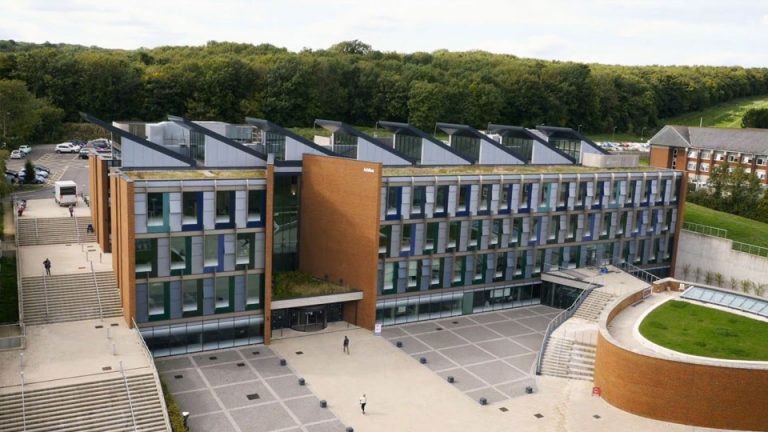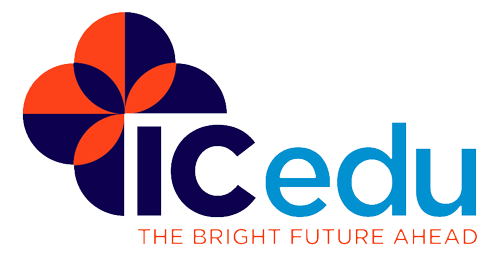
Facts and figures
The University of Sussex is a leading higher education and research institution near Brighton, in the south of England. Sussex was the first of the new wave of UK universities founded in the 1960s, receiving its Royal Charter in 1961.
Innovative research and scholarship
Sussex is a leading research university, as reflected in the 2014 Research Excellence Framework (REF).
Over 75% of research activity at Sussex is categorised as world leading (4*) or internationally excellent (3*) in terms of originality, significance and rigour.
Individual highlights of the REF 2014 results include:
- Sussex History was the highest rated History submission in the UK for the quality of its research outputs
- the Sussex English submission rose from 31st to 9th across the UK since the last research assessment exercise in 2008
- 84% of the University’s research impact in Psychology was rated as the top possible grade, 4*
- Sussex Geography had the most 4*-rated research impact of any Geography submission across the UK.
Overall, the University was placed 36th (of multi-disciplinary institutions) by grade point average (GPA).
Teaching and learning
The University of Sussex has 16,820 students (2017-18 full-time equivalent figures), of which around a quarter are postgraduates. 76% of our student population are UK or EU students and 24% are overseas students.
Creative thinking, diversity in our teaching, intellectual challenge and interdisciplinarity have always been fundamental to a Sussex education.
Our goal is to deliver teaching and learning programmes informed by current research, attractive to students from all socioeconomic and cultural backgrounds and which deliver skills for life.
Our staff
Sussex has developed a reputation for innovation and inspiration, and attracts leading thinkers and researchers.
We have more than 2,100 staff, including around 1,000 teaching and research staff, of which over 300 are research-only.
We have had three Nobel Prize winners, 12 Fellows of the British Academy and a winner of the prestigious Crafoord Prize on our staff.
International Sussex
From its foundation, Sussex has had an international perspective to its academic activities and its outlook.
We attract staff and students from more than 100 countries to our campus, and nearly a third of staff come from outside the UK.
Our research tackles major world issues with leading areas of expertise such as climate change and development studies.
We have extensive links with institutions worldwide, such as Peking University, National Taiwan University and the Harvard-Sussex programme.
Campus life
Sussex has one of the most beautiful campus locations in the UK.
Situated in rolling parkland on the edge of Brighton, the campus combines award-winning architecture with green open spaces.
The campus is surrounded by the South Downs National Park but just a few minutes away from the lively city of Brighton & Hove.
Designed by Sir Basil Spence, the buildings that make up the heart of the campus were given listed building status in 1993. Falmer House is one of only two educational buildings in the UK to be Grade I-listed in recognition of its exceptional interest.
Business and the community
Sussex has a long tradition of engaging with business and the community, which continues today through activities such as the Sussex Innovation Centre, public lectures and services to the community.
Our goal is to help businesses and organisations in the region develop higher staff skill levels through training, and to stimulate innovation through partnership with other institutions outside Sussex to benefit the wider society.
The Sussex Innovation Centre provides support for the creation and growth of technology- and knowledge-based companies in Sussex.
The Centre is now a thriving business environment for nearly 80 high-growth companies.
Since its creation more than 160 companies have been based at the Centre; their cumulative revenue exceeds £250 million and they employ hundreds of people locally.
Office for Students Transparency information
In accordance with regulations set out by the UK’s Office for Students, we publish the following information in the interests of transparency regarding our admissions data and student body.
The information published on these pages shows:
- The number of applications for admission on to recognised, undergraduate higher education courses that we have received from UK domiciled applicants.
- The number of offers we have made in relation to those applications.
- The number of those offers accepted and the number of those who have registered with us.
It also shows these numbers by reference to:
- The gender of the individuals to which they relate.
- Their ethnicity.
- Their socioeconomic background.
It is important to note that the data presented has not been contextualised. This means, for example, that you will not be able to see from this data how many of those applying to courses met the entry criteria. It is also the case that universities and colleges will often receive many more applications than they have spaces on courses and so offer rates will necessarily be lower than application rates in those circumstances.
The University of Sussex is committed to being a diverse and inclusive space, welcoming students from every background. Over the next five years, we have stretching ambitions that are set out in our Access and Participation Plan to ensure our campus becomes more representative of the country as a whole. We will build on a deep tradition of social responsibility to attract and support students from underrepresented groups with a range of tailored measures.
![]()


